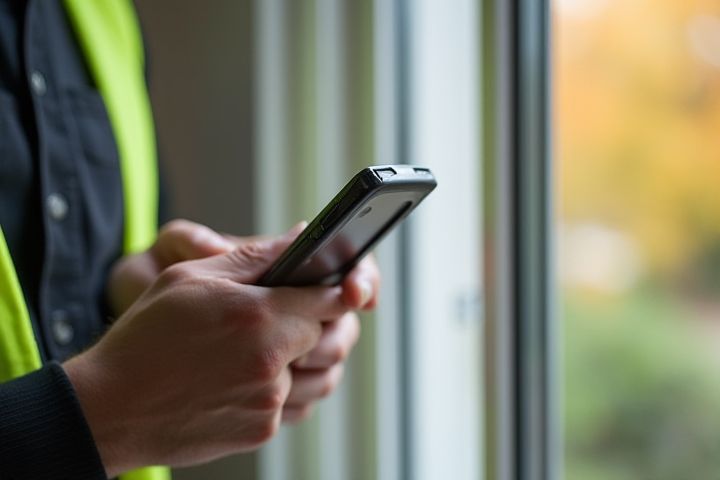
A professional home inspector conducts a thorough examination of the property before closing, assessing various systems and components such as the roof, plumbing, electrical systems, and structural integrity. This inspection provides critical information regarding the home's condition, helping you identify any potential issues that could affect your decision to purchase. Many buyers also consider hiring specialized inspectors for areas like pest infestations or radon levels, ensuring a comprehensive evaluation. Real estate agents often recommend trusted inspectors to guarantee the inspection meets local standards and regulations. Understanding the findings from the inspection report can empower you to negotiate repairs or price adjustments before finalizing the sale.
Who Inspects A House Before Closing
Home Inspector
A home inspector is a licensed professional who evaluates the condition of a property before a sale is finalized. Typically, this inspection occurs within the 7 to 14 days following the acceptance of an offer, ensuring any critical issues are identified early. Home inspectors examine various components, including the roof, foundation, plumbing, electrical systems, and appliances, providing a comprehensive report that highlights potential repairs or safety concerns. This detailed assessment can influence your negotiations and decision-making process, ensuring you make an informed investment.
Appraiser
An appraiser plays a crucial role in the home buying process by evaluating the property's value before closing. This professional conducts a thorough inspection, assessing various factors such as the home's condition, location, and recent sales of comparable properties. Their report helps lenders determine whether the property's value aligns with the agreed-upon price, ensuring a fair transaction for both buyer and seller. Additionally, understanding the appraised value can help you negotiate repairs or price adjustments prior to finalizing the sale.
Pest Inspector
A pest inspector plays a crucial role in assessing a house before closing, focusing on identifying any signs of infestations, such as termites, rodents, or other pests. Typically, this inspection occurs after the buyer's offer is accepted and is essential for determining the property's condition and potential future costs. Many lenders require a pest inspection report, which outlines any issues and possible treatment options, ensuring that you are making an informed decision. On average, a pest inspection can take 1-2 hours, providing peace of mind and protecting your investment.
HVAC Technician
An HVAC technician plays a crucial role in the home inspection process before closing, ensuring that the heating, ventilation, and air conditioning systems are in optimal working condition. They assess the efficiency and functionality of equipment, checking for issues like refrigerant leaks, duct integrity, and proper airflow. A thorough inspection typically takes 1-3 hours and may reveal the necessity for repairs or replacements, which can significantly influence your decision to purchase the home. Investing in an HVAC inspection can save you from unexpected costs in the future, especially in homes where the HVAC system is over 10 years old.
Plumber
A plumber conducts a thorough inspection of the plumbing system before closing on a house, ensuring all pipes, fixtures, and appliances meet safety and functionality standards. This inspection often involves checking for leaks, verifying water pressure levels, and assessing the condition of water heaters and sump pumps. According to industry standards, nearly 15% of home buyers encounter plumbing issues within the first year, making this inspection critical for your peace of mind. Proper plumbing inspection not only protects your investment but can also save you from costly repairs down the line.
Electrician
Before closing on a property, it is crucial to have a certified electrician conduct a thorough inspection of the electrical system. This inspection assesses the safety and functionality of wiring, outlets, circuit breakers, and overall electrical compliance with local codes. The electrician checks for potential hazards like outdated systems or improper installations that could pose risks to your safety. A detailed report from the electrician will help you make informed decisions and negotiate repairs with the seller if necessary.
Roof Inspector
Before closing, a roof inspector evaluates various aspects of the roof's condition, which can significantly affect your home's value and safety. This expert examines the age of the roofing materials, checking for any signs of wear or damage, such as missing shingles or leaks. Typically, a comprehensive roof inspection takes around one to two hours, and you can expect a detailed report within 24 hours. A roof inspector's findings can lead to negotiations regarding repairs or adjustments in your closing costs, ultimately protecting your investment.
Structural Engineer
A structural engineer plays a crucial role in the house inspection process before closing. They meticulously assess the structural integrity of the property, examining key elements such as the foundation, framing, and roof for any signs of damage or potential issues. This expert evaluation helps identify concerns that could affect the safety, stability, and overall value of your investment. Engaging a structural engineer not only ensures compliance with building codes and standards but also provides peace of mind that you are making a sound financial decision.
Property Surveyor
A property surveyor plays a crucial role in the house inspection process before closing. They assess the property's boundaries, identify potential issues, and evaluate the structural integrity of the building. This professional provides detailed reports that highlight concerns such as land encroachments, zoning violations, and easements that could affect your ownership. Engaging a qualified property surveyor ensures you make an informed decision and protects your investment in the long term.
Radon Inspector
A Radon Inspector plays a crucial role in ensuring the safety of your future home before closing, specifically measuring radon gas levels. This professional utilizes specialized equipment to conduct tests, typically over a period of 48 hours, to accurately assess radon concentration in the indoor air. According to the U.S. Environmental Protection Agency (EPA), radon levels above 4 picocuries per liter (pCi/L) pose significant health risks, including lung cancer. By engaging a qualified Radon Inspector, you secure peace of mind regarding radon exposure, which affects about 1 in 15 homes across the United States.
